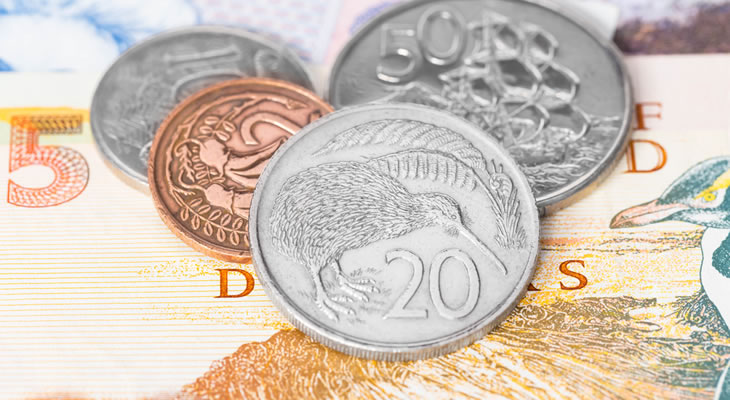The Pound New Zealand Dollar exchange rate has been falling since markets opened this week, as ‘Kiwi’ investors have been impressed with Adrian Orr’s appointment as the next Reserve Bank of New Zealand (RBNZ) Governor. Sterling was boosted by the latest UK inflation data however.
GBP NZD saw mixed trade last week, opening at the level of 1.9563 and fluctuating before closing at 1.9575. Since Monday the pair has fallen and on Tuesday morning the GBP NZD hit a low of 1.9210.
Pound (GBP) Could Rise if Brexit Negotiators Remain Optimistic
While Sterling has weakened against many rivals this week, some analysts suspect that Pound traders aren’t actually notably disappointed in the latest Brexit developments.
Instead, market data suggests that Sterling traders are buying long positions on the currency which has led to a brief Pound drop. Rising GBP long positions indicated that many traders expect Sterling will advance in the coming weeks.
The UK government has reached a perceived agreement with EU officials on the first phase of Brexit negotiations.
However, the second phase of talks, set to include key trade discussions and potentially a deal on a transitional period, may not begin until February 2018 at the earliest.
Overall though, investors seem more optimistic on the Pound outlook and Sterling saw stronger support on Tuesday in the form of Britain’s November Consumer Price Index (CPI) report.
UK inflation was forecast to rise from 0.2% to 0.3% month-on-month and remain at 3.0% year-on-year. The figures came in higher than expected though, at 0.3% and 3.1% respectively.
This defied analyst expectations that UK inflation had peaked and even caused some speculation that the Bank of England (BoE) could be pressured into tightening UK monetary policy again sooner than expected.
According to Lucy O’Carroll, Chief Economist at Aberdeen Standard Investments;
‘The Bank of England has a tricky tightrope to walk. Too much inflation could threaten the Bank’s credibility and therefore its grip on the economy. But they need to keep consumer spending, the engine of the UK economy, chugging along too.
If inflation keeps creeping up, or remains elevated, then the chances of the engine sputtering rise incrementally.’
On the other hand, other investors have suggested that inflation will either peak soon or has already peaked and this could make it too risky for the BoE to hike UK interest rates again in the near future.
Investors won’t have to wait too long for the Bank of England’s view on UK inflation, as the bank will be holding its December policy decision on Thursday and this is likely to have a notable impact on the Pound.
Wednesday’s UK job market report could also influence the bank’s tone, particularly the average earnings data as a consumer pay squeeze has been a major issue for the bank to tackle over the last year.
Regardless of Brexit concerns, Britain’s economic outlook could change in the coming days due to UK data and the Bank of England and this will impact the Pound.
New Zealand Dollar (NZD) Outlook Higher as Political Concerns Fade
The New Zealand Dollar plunged in October when New Zealand’s Labour Party shocked investors by successfully forming a coalition government with the NZ First Party, defying expectations that the National Party would easily win power.
Markets were concerned that the Labour Party would change the Reserve Bank of New Zealand’s (RBNZ) mandate, but recent news has indicated that even if the Reserve Bank Act is reviewed the bank will continue to focus heavily on tackling inflation.
On Monday, acting RBNZ Governor Grant Spencer announced that the next RBNZ Governor would be experienced NZ economist Adrian Orr. Orr’s five-year term is set to begin in March 2018.
As Orr has years of experience in banking, his appointment boosted market optimism towards New Zealand’s monetary policy outlook.
Some analysts have noted that the New Zealand Dollar’s October selloff was overdone, so Orr’s appointment may have kicked off a more hawkish movement on the ‘Kiwi’.
It’s possible the New Zealand Dollar will continue to rise as investors buy the currency back, as political concerns are relaxed.
Upcoming New Zealand data is unlikely to have much influence on the New Zealand Dollar however, so the ‘Kiwi’s gains against the Pound could run out of steam soon – especially if upcoming UK data impresses.
Thursday’s business NZ PMI for November could inspire NZD movement slightly, but political news, risk-sentiment and the strength of the Pound are more likely to alter the GBP NZD outlook.
GBP NZD Interbank Rate
At the time of writing this article, the Pound New Zealand Dollar exchange rate trended in the region of 1.9185. The New Zealand Dollar to Pound exchange rate traded at around 0.5211.


Comments are closed.